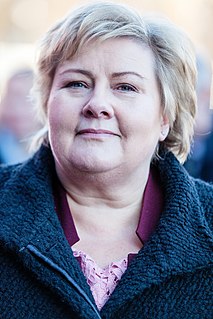A Quote by Ronald Reagan
With all this talk about the supposed strain in relations [with the Soviet Union], there is an inference that somehow it is our fault. But we didn't kill Russian civilians by shooting down a civilian airplane. We didn't attempt to conquer an adjacent country to ours. We didn't walk out on negotiations and refuse to give a date for when we would resume.
Related Quotes
25 million of Russian people suddenly turned out to be outside the borders of the Russian Federation. They used to live in one state; the Soviet Union has traditionally been called Russia, the Soviet Russia, and it was the great Russia. Then the Soviet Union suddenly fell apart, in fact, overnight, and it turned out that in the former Soviet Union republics there were 25 million Russians. They used to live in one country and suddenly found themselves abroad. Can you imagine how many problems came out?
This much I would say: Socialism has failed all over the world. In the eighties, I would hear every day that there is no inflation in the Soviet Union, there is no poverty in the Soviet Union, there is no unemployment in the Soviet Union. And now we find that, due to Socialism, there is no Soviet Union!
Strong countries and strong presidents talk to their adversaries. That's what Kennedy did with Khrushchev. That's what Reagan did with Gorbachev. That's what Nixon did with Mao. I mean think about it. Iran, Cuba, Venezuela - these countries are tiny compared to the Soviet Union. They don't pose a serious threat to us the way the Soviet Union posed a threat to us. And yet we were willing to talk to the Soviet Union at the time when they were saying we're going to wipe you off the planet.
The first year I was in office, only about 800 people came out of the Soviet Union, Jews. By the third year I was in office... second year, 1979, 51,000 came out of the Soviet Union. And every one of the human rights heroes - I'll use the word - who have come out of the Soviet Union, have said it was a turning point in their lives, and not only in the Soviet Union but also in places like Czechoslovakia and Hungary and Poland [they] saw this human rights policy of mine as being a great boost to the present democracy and freedom that they enjoy.
The Soviet Union was brought down by a strange global coalition of Western European conservatives, Eastern European nationalists, Russian liberals, Chinese communists, and Afghan Islamic reactionaries, to name only a few. Many of these discordant groups disliked the United States intensely. But Americans were able to mobilize them to direct their ire at the Soviet Union first.
An old Russian woman goes into Kremlin, gets an audience with Mikhail Gorbachev and says, In America anyone can go to the White House, walk up to Reagan's desk and say, 'I don't like the way you are running the country.' Gorbachev replied, You can do the same thing in the Soviet Union. You can go into the Kremlin, walk up to my desk and say 'I don't like the way Reagan is running his country.'
Why were the Europeans bothered about the Soviet Union at all? It was nothing to do with us. China had nothing to do with us. Why were we not building, without reference to the Soviet Union, a good society in our own countries? But no, we were all - in one way or another - obsessed with the bloody Soviet Union, which was a disaster. What people were supporting was failure. And continually justifying it.
My mother was really involved with the Refusenik campaign with Soviet Union Jews. They would come and stay at our house, some of them, after they managed to get out of the Soviet Union at the time. There were things that were Jewish-related happening in my house quite consistently, but it was much more from a kind of activist standpoint.






























